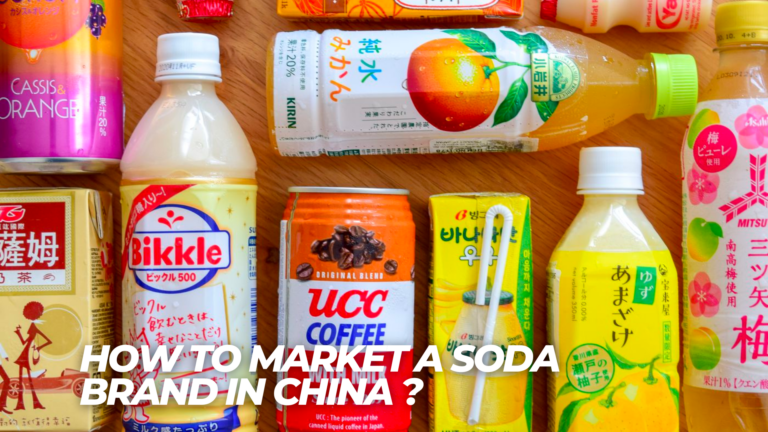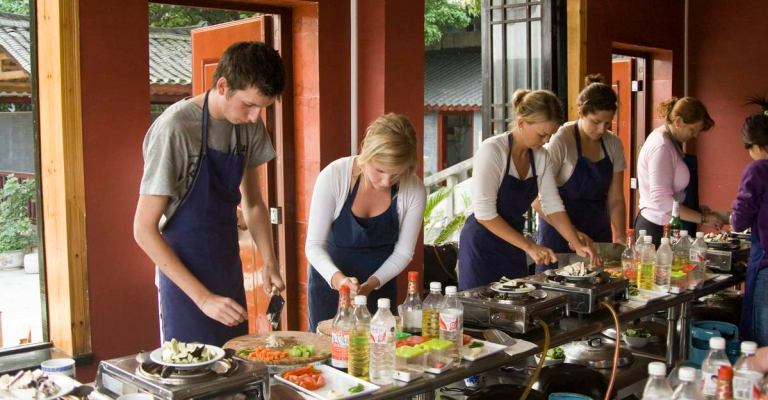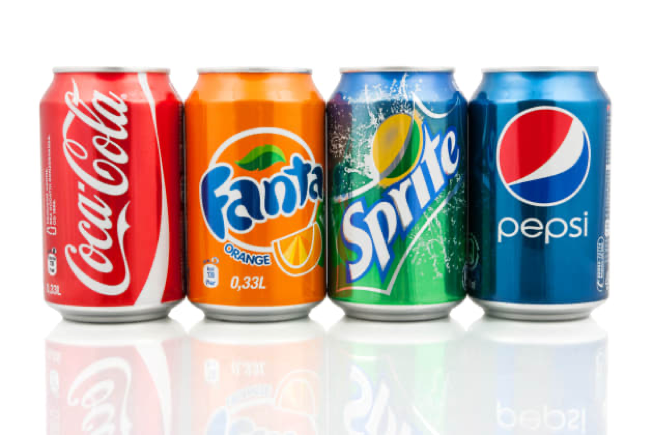The Latest Coffee Trends in China

Coffee culture in China is not exclusive to foreigners or locals returning to the country from overseas anymore. According to Reuters, the world’s one of the fastest-growing coffee markets, China, has roughly 110,000 coffee shops all around the mainland.
In Chengdu alone, –China’s third biggest coffee market- despite the pandemic, an average of one coffee shop opened every single day in 2020!
Cost-Effective Agency
KPI and Results focused. We are the most visible Marketing Agency for China. Not because of huge spending but because of our SMART Strategies. Let us help you with: E-Commerce, Search Engine Optimization, Advertising, Weibo, WeChat, WeChat Store & PR.
The increasing Demand for Coffee and Popularity of Coffee Shops in China
Blue Bottle Coffee has finally opened in China with a stunning coffee shop located in the Yutong Flour Mill. It dates back to 1926. The new two-floor store called ‘Yutong Cafe’ is situated in one of Shanghai’s most historic buildings.
The opening gathered a crowd of 200 to 300 people even before the doors opened at 8. Dozens of Chinese coffee lovers queued at 6 that day, just to buy a cup of coffee.
The hype over Blue Bottle Coffee demonstrates China’s expanding coffee culture, which blossomed in the last decade. Currently China is far from being the most significant coffee market. But many experts believe it will soon overtake many European nations as well as Japan.

How distancing measures following COVID-19 benefited Sales of Coffee in China?
While The COVID-19 pandemic has had a major negative impact on markets in general, the coffee market in China has been one of the least affected. Though the strict lockdown measures have kept people from going out to coffee shops for many months, it has not stopped them from drinking coffee. On the contrary, more Chinese people have turned to at-home coffee drinking. This resulted in a positive impact on instant coffee sales in the country.
Which are the Leading Brands in Coffee in China?
With nearly 60% of the coffee market in China, Starbucks is by far the most popular western chain. However, more and more some people opt for national chains as an alternative to dominant players like Starbucks, Costa or Lavazza.
Luckin Coffee, a new Chinese coffee business that has joined the competition to take on Starbucks, is among the most well-known. In three years, from the origin of nine stores in Xiamen on China’s southeast coast to over 4,000 by 2020, Luckin Coffee has experienced fast expansion.

Another up-and-coming local coffee brand is Shanghai-based Manner Coffee. It began as a roadside boutique in 2015.
By 2017 it was said to be opening a new store every day from June through . Other Chinese brands have also caught the attention of customers with unique coffee selections, like Seesaw and M Stand.
Foreign brands just like the local brands are eying the potential of the coffee market in China. For instance, Tim Hortons, a Canadian coffee shop chain, recently opened its first cafe in Shanghai in 2019. It managed to open over 300 stores throughout China by the end of 2021. By 2026, Tim Hortons’ China operation aims to open another 3000 shops and become one of the leaders in coffee market in China.

How China’s evolving Demography is affecting Coffee Consumption?
For Chinese middle-class coffee enthusiasts, standart coffee machines no longer satisfy their needs. They are into discovering new flavors and aromas. They demand hand-drip, siphon, and high-end premium coffee with a backstory if possible.
When it comes to lower-income Chinese customers or young Chinese students, they are more concerned about price. It is a fact that in China coffee is still considered a luxurious drink. To make it clear, in 2021, the average cost of a cup of coffee in China was A$4.05. milk tea or juice was A$1.50. For lower-income Chinese customers coffee with affordable prices matters more than how the coffee is brewed.
For Chinese Millenials on the other hand, things are different. They demand luxurious specialty cafes and the highest quality coffee in the market.
read
Luxury Brands forking into Coffee World
It’s no surprise that the high-end fashion brands are opening luxurious boutique cafes like Tiffany Blue Box Café and Burberry Thomas’s Café. They are also establishing events using coffee as their theme. They aim to connect with coffee-loving Chinese customers.
Prada for instance has opened a pop-up store called Prada Garden at Jiya Gathering. It is a coffee house located on busy Wukang Road in Shanghai.
Louis Vuitton on the other hand changed the Yuyuan Shopping Center into a pop-up store. Fendi, another high-end brand, presented its new winter sports capsule collection at the Changbaishan International Resort. It is a skiing destination located in northern China. The collection was released alongside a pop-up space and Fendi Cafe, as the new additions to the resort.

Key Strategies to Enter the Coffee Market in China
The coffee market in China has yet to reach its full potential, according to many experts in the industry. While cafés are more popular in first-tier cities, more cafés are opening in developing cities like Chengdu, Nanjing, and Tianjin, as well as Qingdao. This is signaling the continuing growth of coffee culture throughout China.
Currently, the average person in China drinks five cups of coffee per year while in the United States that number is 400. In European countries, it exceeds 1,000. This means that there is still a lot of potential for growth in non-metropolis areas for brands looking to establish themselves.
1- Being Innovative and Localizing the Products.
Only a minority of Chinese coffee lovers have developed a taste for plain black coffee. Coffee without sugar, cream, milk, or flavors is still not as popular among Chinese coffee lovers. Brands that bring innovation to the market take the attention of the customers. For instance, Chinese popular healthy food cafe Wagas serve espresso mixed with coconut water in the coconut shell. Luckin cafe has already followed the trend and developed a signature drink called the coconut latte which became a success.
2- Discovering the Dynamics of a Truly Unique Market.
The fast growth of coffee market in China is accompanied by a bigger selection of consumers. Chinese consumers have a wide range of peculiar buying habits, budgets, and demands. As a result, there are always a few distinct trends taking place at the same time in China, producing a unique market.
3- Attending and Exhibiting at Coffee Events in China
Many coffee events and trade shows are being held in China’s first-tier cities due to high demand. There are many coffee festivals and events held throughout China each year, as well as trade shows, exhibitions, and competitions. Attending or exhibiting at one of these festivals is a low-cost marketing technique for many Chinese coffee companies. Some major coffee events are Shanghai Hotelex Exhibition and Shanghai Food Hospitality festival.
4- Creating the Affordable High-end
Brands looking to expand coffee market in China can follow Manner’s striking marketing strategies. They keep affordable prices and emphasize their high-quality coffee beans. In terms of coffee, Manner Americano and Latte are two popular options that cost about ten to fifteen RMB per cup. It is half the price of Starbucks’ same-style coffee.
5 Re-inventing the Cafe Experience: A hub for the Community
Coffee shop locations are often central and accessible, making them perfect spaces for connection. They can also be utilized as multi-functional event-hosting spots that support local communities by bringing people together.
In addition to the social benefits that coffee shops provide, they offer superb working and study conditions. With more people opting to work from home or have flexible work hours, many are choosing to spend at least part of their day in a cafe.
A great coffee shop establishes both a warm and inviting ambiance, as well as areas where people can sit and concentrate with some privacy. This happy medium is one of the reasons that coffee shops have become more popular than locations such as libraries. They are better equipped to handle today’s needs for freelance workers.
Coffee shops will only continue to grow more popular as more people seek work options like this. Even for organizations and employees, coffee shops are ideal to conduct informal talks.
The Future of Coffee Market in China
Although the coffee market may appear oversaturated, consumption in China is still relatively low compared to other countries. This provides business opportunities for those who are willing to capitalize on new trends and flavors. Because Chinese people are curious and open to trying new things, there is a potential customer base interested in learning more about coffee.

Looking to export your coffee brand?
Contact GMA today. We offer a variety of solutions for coffee brands, including distributorship, direct selling, and franchises.
We are China’s top digital marketing and social media consultancy. If you’re looking to break into Asia’s largest economy, we can assist! We know the Chinese market inside out and have a vast network that allows us to deliver lower costs for foreign firms.






